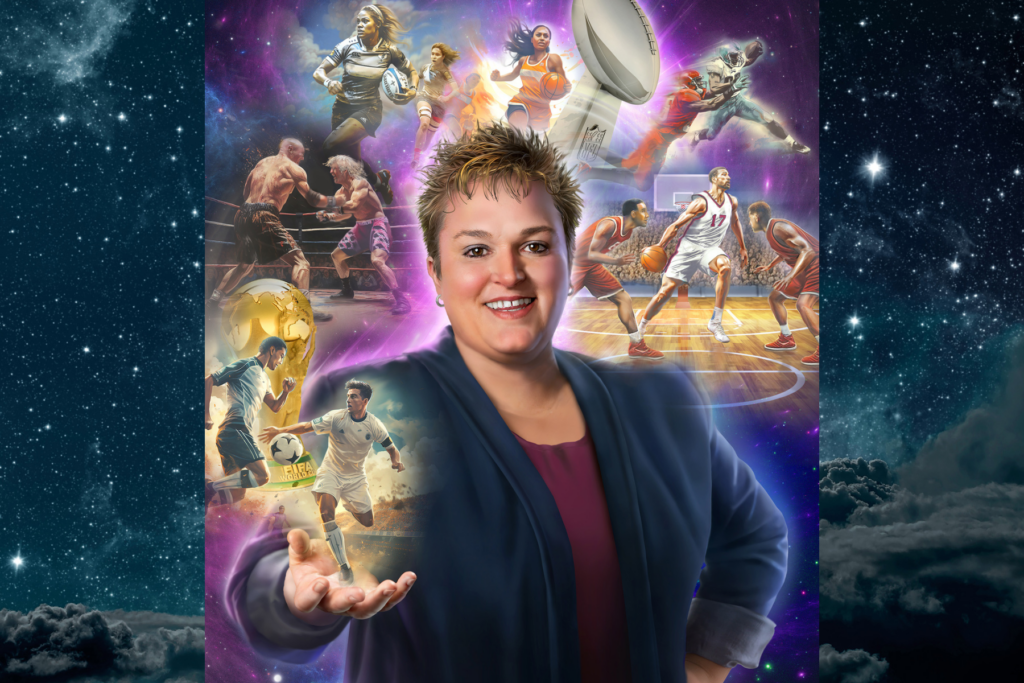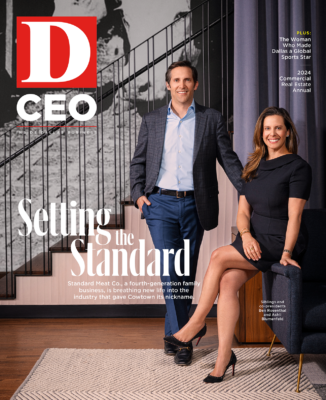This story originally appeared in D CEO magazine’s March issue, titled The Supernova of Sports Business.
A supernova event in the
cosmos is the bright, beautiful
explosion of a star.
Monica Paul is accustomed to winning. Even dating back to her teenage years, she was the valedictorian at her high school in the Texas town of Caldwell, just outside of College Station. These days, Paul is executive director of the Dallas Sports Commission and the chief figure in scoring sporting events—large and small—for North Texas. The 570 events she has brought to North Texas since 2008 have yielded $4.3 billion of economic impact for the region.
Her most recent win will have the biggest impact Dallas-Fort Worth has ever seen—scoring an impressive nine 2026 FIFA World Cup matches for AT&T Stadium in Arlington, the most of any of the 16 North American hosts. But when FIFA announced that honor on Sunday, Feb. 4, Paul knew the grand prize, the final match, was no longer in play for North Texas. Despite rumors swirling for weeks from British media outlets that AT&T Stadium would be selected for that honor, FIFA chose MetLife Stadium in East Rutherford, New Jersey.
“The rumors might have been the worst part of the process,” Paul says. “When you’re two weeks out from the announcement and you start seeing headlines that its coming to Arlington … that put us in a unique situation—and, frankly, released a little bit of doubt in my head. So, going into announcement day, we had an inkling that the most matches a city could host and host the final was eight. So, after they said we’d get nine, we knew we were not going to be announced as the final city. Was it heartbreaking? I’m not going to lie, yes it was.”
The feeling is not unlike what followed a similar heart wrenching verdict. “After we hosted the Men’s Final Four in 2014 … [pause] I thought I was over this,” she says with a strain in her voice. “We put in a bid to host it again sometime between 2023 and 2026. When I got the phone call telling me we didn’t get it, but Houston and San Antonio did—that one hurt.”
The wound didn’t linger for too long as Paul led a successful bid to bring the 2023 Women’s Final Four to the American Airlines Center. As it turned out, the year belonged to women’s basketball. The three games in Dallas attracted 18.9 million viewers, with the national championship game peaking at 9.9 million. It was the most-viewed Women’s Final Four weekend on record, with the three-game slate garnering an 87 percent increase over 2022’s event. For Dallas, it resulted in $40.3 million in economic impact. “God might’ve known what he was doing when he didn’t give us the 2023 Men’s Final Four,” Paul says. Thanks to her efforts, though, the Men’s Final Four is returning to North Texas in 2030.
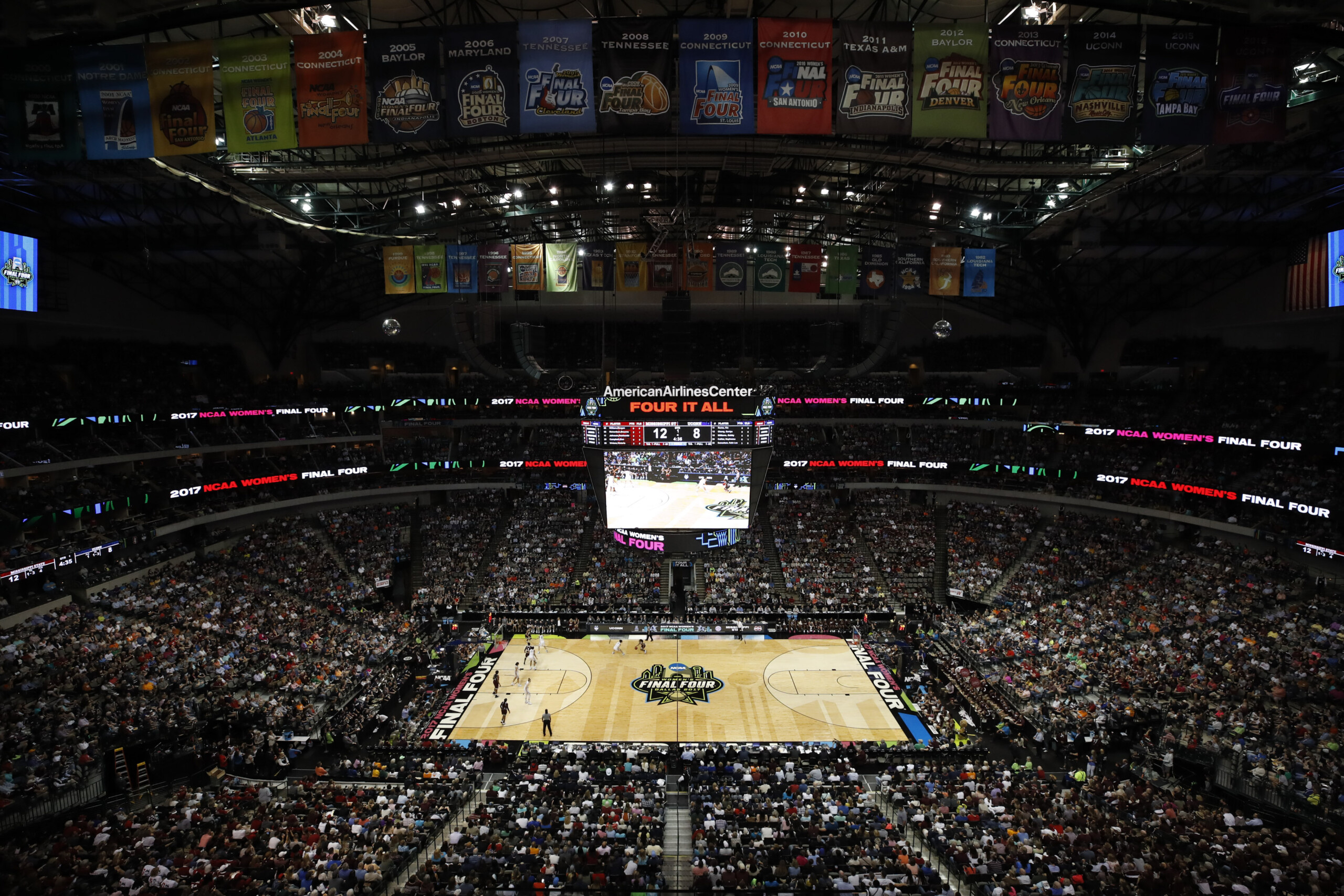
Similarly, the wound from not scoring the World Cup final for the region was not one that lasted. Paul has her full sights on the men’s World Cup, but in 2027 or 2031 Paul is chasing after the women’s World Cup for DFW. “I think our results from the 2026 tournament will show FIFA we need to be in consideration for hosting a women’s final,” she says.
Initial forecasts for the 2026 World Cup showed that the DFW region will see about $400 million in economic impact from the matches. But due to various financial factors, Paul has thrown that figure out the window. “All the calculations we’re running, which factor in various other events like fan fests and corporate activations, is showing a much higher number than $400 million,” she says. And Dan Hunt, prior to the announcement, suggested the figure could finish with an extra zero. “Should AT&T Stadium host six or seven games, we’re going to be talking about billions in economic impact,” he says. Turns out, Hunt’s expectations were exceeded—and the impact could reach beyond his forecast, as well.
Supernova bursts are so
bright they can outshine their
galaxies for months.
Paul tirelessly works to have all the answers. It’s the feature that Dave Brown, chief operating officer and general manager of the American Airlines Center and past chair of Visit Dallas, saw in Paul when he interviewed her in 2008 for a director of sports marketing position at the organization.
“When we hired Monica, the region went from small-game hunters to big-game hunters,” Brown says. But the one answer Paul doesn’t have is exactly how her career morphed from planning area volleyball tournaments one day to Final Fours and the FIFA World Cup the next. “I think about it often—like, when did things explode?” she asks rhetorically. “When I look back on my career and the events we’ve hosted, I really have no idea when the skies opened up.”
Back when Paul joined Visit Dallas (known as the Dallas Convention & Visitors Bureau at the time), the city’s sports commission had not yet been established. There had been efforts to create such an entity over the years, most notably in the 1980s, when the Dallas International Sports Commission emerged under the direction of former Dallas Mayor Annette Strauss and former Cowboys coach Tom Landry. More recently, the Dallas-Fort Worth Regional Sports Commission was created in 1999 as part of a movement to secure the bid for the 2012 Summer Olympics. Both organizations quickly shuttered.
“I think they failed because they tried to start as standalone entities,” Brown says. “They didn’t have the backing of an already established organization, and when they couldn’t land big events, they fizzled.”
The Dallas Sports Commission was officially spun out of Visit Dallas in 2014, and Paul was appointed to helm the organization, which had a staff budget of $725,000. Today, that budget has grown to more than $2 million, and the commission has become precisely what Brown thought it would under Paul. “When you’re trying to bring these high-profile events to town, it’s cutthroat,” he says. “But Monica thrives in the heat of competition, which has made her so good for Dallas.”
Despite working with global partners on the highest of high-profile events, Paul prefers to operate under the radar. But her peers would like more people to know about everything she has accomplished. “Monica is so humble, and her humility allows her to bring people together, but her recognition is long overdue,” says Charlotte Jones, chief brand officer for the Dallas Cowboys. “Monica isn’t just the leader of the Dallas Sports Commission; she’s the leader of North Texas. Without her, AT&T Stadium would never host the sporting events we have—especially the World Cup.”
Astronomers estimate that a
supernova event occurs
just three times each century.
Paul came of age on her family’s farm in Caldwell. She and her younger brother spent their Saturdays tending to the fields, with Paul sprinkling feed pellets for the grazing cows from the tailgate of her mother’s truck. When she wasn’t on the farm, she was out golfing, playing volleyball, basketball, or throwing the shotput or discus. Ultimately, volleyball became her lead sport and carried her to the University of Mary Hardin-Baylor. But after a year of having to abide by a curfew as a college student, Paul left the team and transferred to The University of Texas at Austin. “A curfew wasn’t necessarily my speed,” she says with a laugh.
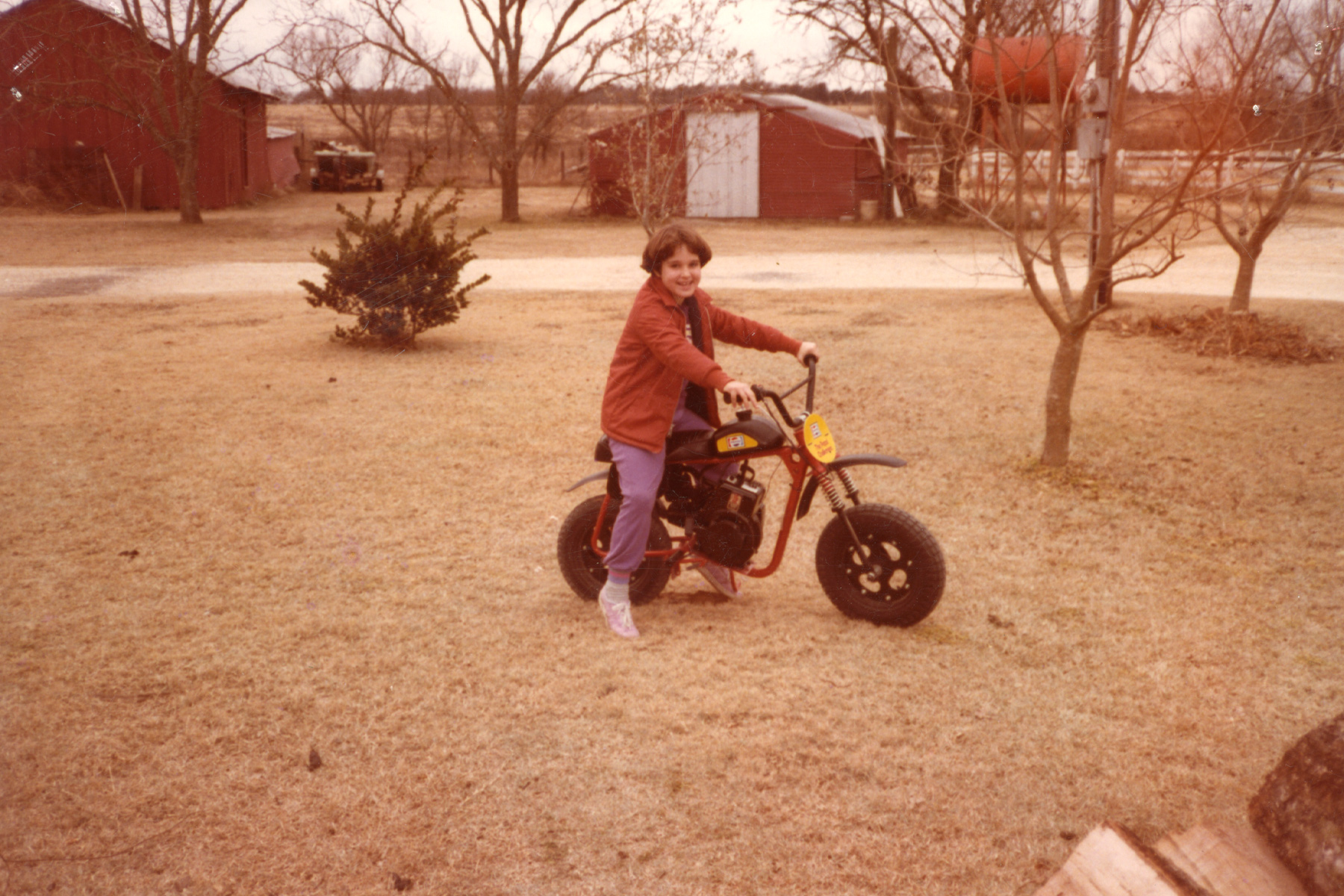
At UT, she got a job as the volleyball program’s team manager, and in Paul’s senior year in 1997, the head coach at the time, Mick Haley, was named head coach for the U.S. Women’s National Team. Haley offered Paul a job to join his staff, and she left her studies to move to the Olympic Training Center in Colorado—14 hours short of a college degree.
Paul worked 11-hour days, making $50 a week, taking care of statistical video analysis, coordinating with numerous sponsors, and handling the team’s travel agendas. She traveled to 27 countries, including the 2000 Olympic Games in Sydney, Australia, and, as a technical delegate, the 2004 games in Athens, Greece. She eventually earned her undergrad degree by piecing together classes at other universities and transferring the credits back to UT. “I might’ve taken a Spanish class from Oklahoma and transferred it back to Texas,” the Longhorn grad says with a laugh. “Man, that’s horrible.” She later earned a master’s degree in sports administration from Northern Colorado.
In 2001, Paul returned to Austin to work for Austin Junior Volleyball as the director of events and sponsorships, running the Lone Star Classic—the largest girl’s junior national qualifier—and various other tournaments. She worked out of an office in a church about the size of a closet. Still, it was where she cut her teeth in event hosting, guest experiences, negotiating contracts with convention centers and vendors, and setting up deals with hotels for officials.
In 2004, the Colorado Springs-based U.S. Olympic Committee was on the brink of decertifying USA Taekwondo as the national governing body for the sport. So, its CEO made sweeping moves to the staff at the time, including hiring Paul as director of international and domestic events. After 18 months, Paul says the organization moved from the red into the black. In 2006, she moved to Louisville to become competition director of the Local Organizing Committee for the National Senior Games. A year later, she rejoined USA Volleyball as its associate director of events. In 2008, Brown poached her to join what eventually would become Visit Dallas. “When I first started, the expectation was just to find space for events and the hotel rooms for attendees,” Paul says. “Fifteen years later, I think there’s a little more weight on my shoulders.”
Paul claims she does, in fact, sleep—although those around her are not so convinced. But when it comes to her work, there’s no shuteye on the job. “I’m still this way today: If I can’t give 120 percent to the task, I need to take a break and come back later or just move on to something else,” she says. At any given moment, Paul and her DSC team of 10 could be working on 25 different events at once. “There’s a reason why North Texas hosts more great events than any other community in the U.S.—Monica is the biggest part of that,” Hunt says.
The load is nothing Paul can’t carry. After all, Charlotte Jones and other industry icons say she’s a star they can’t do without—a fact Paul still can’t believe. “In the darkness, in the celebration, Monica is the exact same,” she says. “In the stress, without the stress, she’s unflappable. The weight of the world was on her shoulders to bring the global game’s biggest event to Arlington.”
Supernovas can trigger the
formation of new stars
and influence the dynamics
of galactic evolution.
Work on the 2026 FIFA World Cup is intensifying. The region is just two years away from hosting the largest sporting event it has ever held, and because the decision came in later than anticipated, the Dallas Sports Commission is working on a condensed timeline—the expectation was to receive the schedule in early 2023. Bringing the event to town won’t be cheap, Paul says, but she assures that returns will be there—despite a study by Switzerland’s University of Lausanne that found more than four out of five Olympics and World Cups ran at a deficit. Of the 14 World Cups analyzed, only Russia’s in 2018 generated a profit, the study found. The university says it is rare for local organizing committees to turn a profit for their regions, but Hunt isn’t worried. “Monica does not make promises she can’t execute on,” he says. Paul doubles down: “The city and region are going to be profitable, even with the expenses we incur,” she says.
“When I first started, the expectation was just to find space for events and the hotel rooms for attendees. Fifteen years later, I think there’s a little more weight on my shoulders.”
Monica Paul
According to the study, the 1994 World Cup, hosted by the U.S., cost the country more than $800 million. Accounting for inflation that equates to $1.6 billion in today’s dollars. Per multiple outlets, Qatar spent a staggering $220 billion on hosting the 2022 Cup. A more realistically comparable event for North America—as Qatar built a transit system, dozens of hotels, and a new stadium for the event—would be Russia, which spent $11.7 billion.
Paul says the World Cup won’t be a burden for local entities. “It’s our goal not to have to go to the city governments and ask for money to assist in putting this on,” she says. “We have the ability to sell 10 host city supporter agreements to corporations, individuals, or other nonprofits. We will work with FIFA on the list and iron out our sellable assets, such as tickets, fan fest activations, legacy programs, and ancillary events. In late 2024, we will set up our donor program, and we’re looking at raising more than $100 million.” That money will go toward event security, ancillary events, event production, transportation elements, and marketing. Additionally, AT&T Stadium will undergo at least $295 million in renovations, but Jerry Jones says that figure is still in flux. An estimated total cost is still to be determined, as well—the local organizing committees and economists working on projections did not run forecasts on a nine-game slate.
One of the most significant question marks for the event during the bid process was—and still is—transportation. North Texas does not have a transit system comparable to other major metropolitan areas in the country. So, an all-encompassing plan is still being ironed out. “We’ve been able to work with the North Central Texas Council of Governments to put a plan together to get the funding necessary to utilize the system that we currently have and then obviously have a significant bus presence—that seemed to be a suitable plan for FIFA,” Paul says.
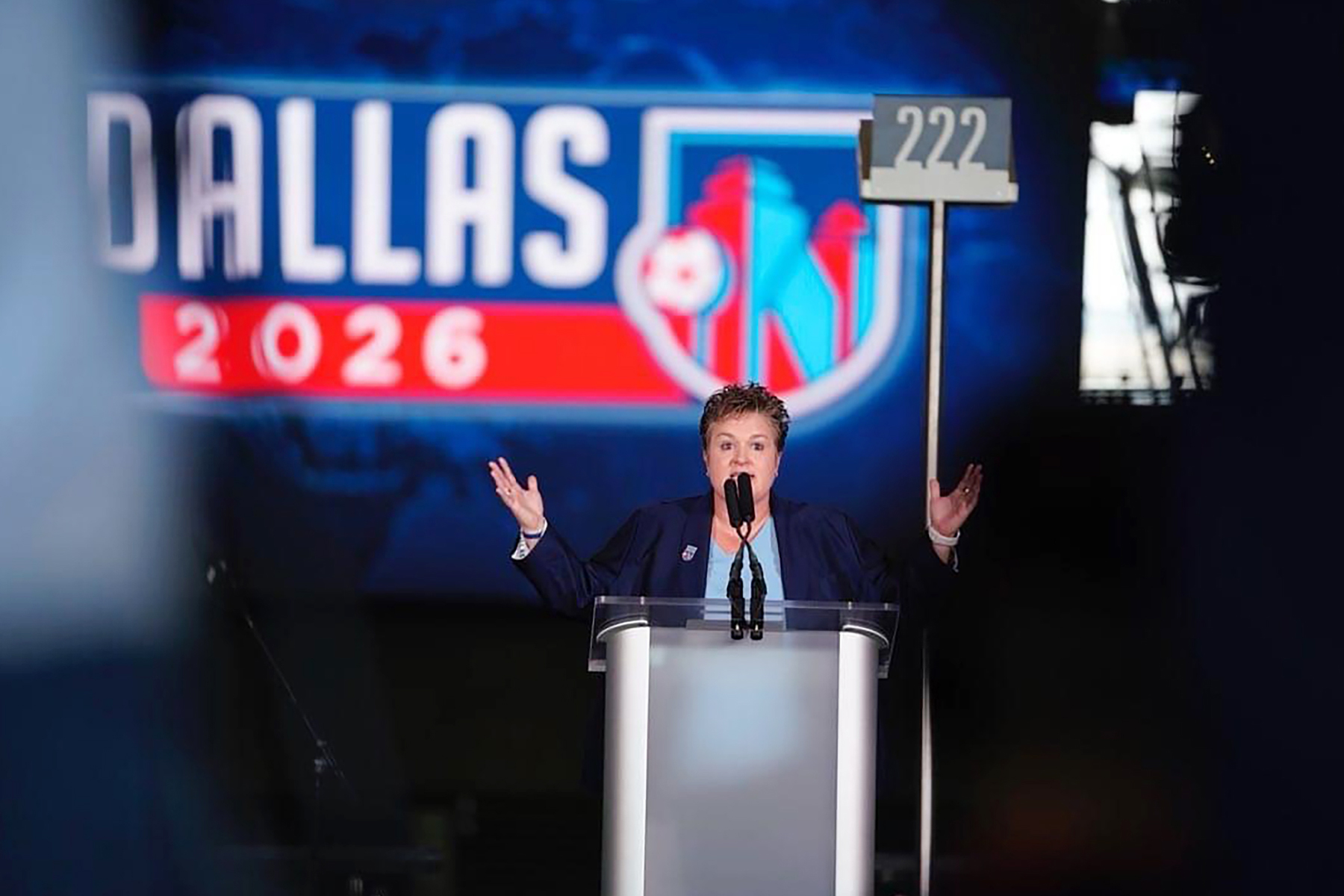
Paul is in communication with FIFA on local issues ranging from homelessness and the state’s stance on LGBTQ+ and transgender rights to trafficking, sustainability, and how the airports operate. She is not just the leader of the local sports commission; she has become the voice for North Texas’ sporting activities.
Along with the high-profile global games, the DSC sees to it that recurring events like the Cotton Bowl and the Red River Rivalry stay in DFW. It also works on local events like recurring youth sports tournaments, chess events, spelling bees, cheerleading competitions, and eSports tournaments. “In January, February, and March, more than 65,000 cheerleaders and their moms and dads are out spending their money at restaurants and attractions downtown,” Paul says. “The youth and grassroots events are our bread and butter.”
As she looks beyond the 2026 World Cup, she foresees a future in which Dallas is viewed in the same vein as New York City—as a premier international destination. She also sees big things for the sport of soccer. Just as the 1994 World Cup birthed Major League Soccer, she believes a new wave of enthusiasm for the sport will engulf the states. Locally, Paul is hopeful the outcome will result in more sporting events for the region, just as Super Bowl XLV and the 2010 NBA All-Star Game acted as sporting event incubators for the DFW region.
This year, she expects to work on more than 60 local sporting events; as the years progress, that number will only grow. After all, the cost of doing business in North Texas is projected to stay lower than competing markets, the region is only expanding, and more wealth is being infused into the economy with corporate and individual relocations. Who knows, maybe someday, DFW will score the Olympics. “North Texas has all the venues to host an Olympics right now,” Paul says. “But I think the soonest we could do it is 2056 (due to LA hosting in 2028). I’ll be 81 years old—I don’t want to be working that event. But I’ll be the first volunteer and, hell, for the cause, I might even donate.”
Other more immediate targets on her list include the 2027 or 2031 FIFA Women’s World Cup, the WNBA All-Star Game, and various NCAA postseason tournaments and volleyball championships. Additionally, she is aiming to strike a partnership with the Dallas Stars to find a host institution for the NCAA Frozen Four tournament. “We are bidding on the 26–27 season and 27–28 season,” she says. Paul also wants to bring the Super Bowl and the College Football Playoff National Championship back to town. “I’m not saying that other cities don’t have what Dallas has,” she says. “But the full package? That only exists in Dallas.”
Author



